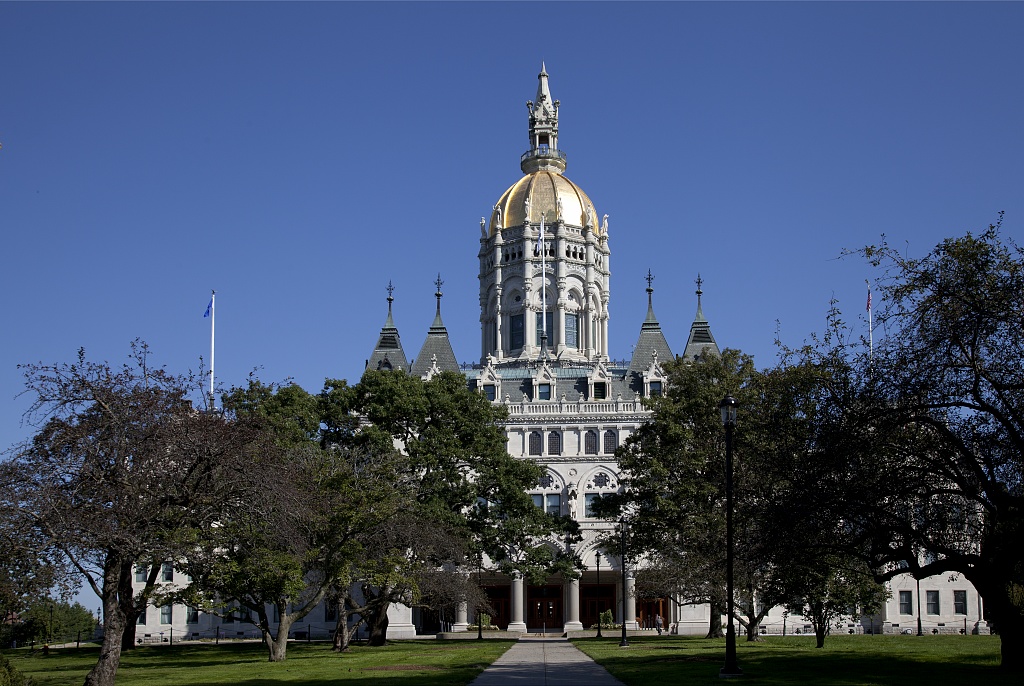
Certain bank branches are robbed repeatedly, but none as regularly as Connecticut has been raiding its hospitals for enormous tax payments – ever since former Gov. Dannel P. Malloy began the practice in 2011.

There was supposed to be tax abatement this year, but, now, Gov. Ned Lamont proposes to continue the raids to close almost half of the $1.5 billion deficit for next fiscal year’s $20 billion budget.
You may wonder why the state is taxing hospitals.
Here’s why. The hospitals are actually collateral damage. The real target is the U.S. Treasury via the Medicaid program.

The whole thing is a scam. Here’s how it works. The state taxes hospitals. Then, the state returns to the hospitals much of the tax revenues, which, on the return voyage, are deemed “Medicaid supplemental payments.” When the state makes “supplemental payments,” it is entitled to federal matching funds.
The more a state taxes its hospitals, and, then, returns the money to the hospitals, the more cash it can extract from the federal Treasury. There’s big money in the scheme.
Malloy’s and Lamont’s hospital taxes are enormous in scale: $900 million yearly. In somewhat simplified fashion, Malloy and Lamont “refund” about $600 million as “supplemental payments.” The state keeps $300 million.
The “supplemental payments” of $600 million generate $450 in federal matching funds.
The state keeps the $450 million. Combined with the $300 million of hospital taxes not returned to hospitals, the state clears a cool $750 million on the whole maneuver. That’s equal to half the entire projected fiscal year 2019-20 budget deficit.
That’s why Malloy taxed hospitals and Lamont is continuing the practice: to close huge, continuing state budget deficits.
It is worth considering the impact and ramifications of this scheme.
First, many hospitals are non-profit. Why tax non-profits?
Second, hospitals are the primary providers of health care in the United States. Why burden them with taxes, which increase their costs?
Health-care costs go up every year. Why pile taxes on top of the annual increases? There’s no good reason, but that misses the point. The point is that hospital taxes are a major part of the nation’s health-care costs and the annual increases.
Hospital costs are just half of the matter. Federal Medicaid costs are the other. When the federal government sends Connecticut $450 million under the hospital-tax scheme, and the state does not send those funds along to hospitals, the cost of the Medicaid program goes up for reasons having nothing to do with health care.
Almost all states tax hospitals. Connecticut is a small state. If other states push the arrangement to the same extreme as Connecticut – that is, keeping the entirety of the federal matching funds – then the scheme drives significant increases in national hospital costs and Medicaid costs.
The Centers for Medicare and Medicaid (CMS) oversee Medicaid, but CMS tracks hospital taxes only when such taxes exceed 6 percent of hospital revenues. The last time any federal body looked into hospital taxes in the 50 states was 2014, when the Government Accountability Office (GAO) did so. The GAO found that 42 states taxed hospitals and concluded these taxes were having a significant impact on Medicaid costs. It urged Congress to take action. Nothing has happened – yet.
Surely, this inaction is negligence, given the likely dollar amounts involved, especially if Connecticut’s behavior is widespread. Looked at another way, Connecticut is quite vulnerable if Congress investigates and takes action. Why would Congress countenance a state exploiting a federal health-care program to raise money – not to fund heath care, but rather to close huge continuing budget deficits?
Actually, Connecticut is at risk even if Congress takes no action. The state’s hospital tax far exceeds 6 percent, above which Connecticut must apply to CMS for affirmative approval. Why would CMS keep approving these applications and risk potentially embarrassing oversight hearings, if Congress decides to conduct hearings into possible abuses in state hospital tax programs?
Finally, why would Malloy, Lamont and the Democratic legislative majorities continue to rely so heavily upon so shaky a source of revenue – and a tax scheme that raises health-care costs for the state’s citizens?
Red Jahncke (Twitter @Red Jahncke) is president of Townsend Group International, a Connecticut-based business consultancy.
![]()
Red Jahncke is a nationally recognized columnist, who writes about politics and policy. His columns appear in numerous national publications, such as The Wall Street Journal, Bloomberg, USA Today, The Hill, Issues & Insights and National Review as well as many Connecticut newspapers.

